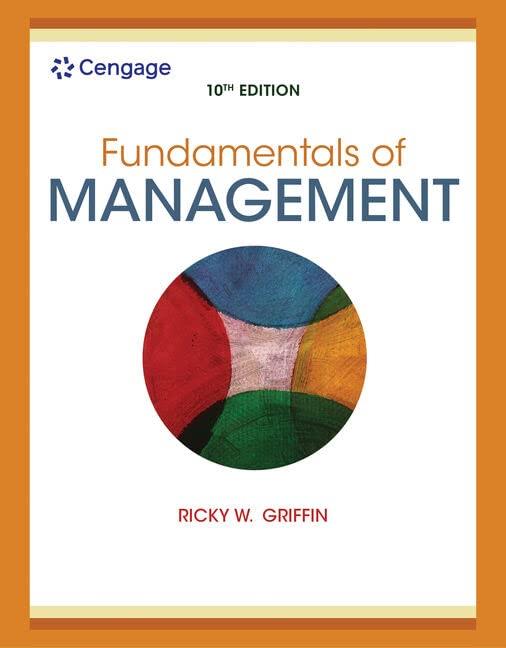Question
Over half of the world's chocolate is produced using cocoa from West Africa, for example in Ghana and the Ivory Coast. However, much of this
Over half of the world's chocolate is produced using cocoa from West Africa, for example in Ghana and the Ivory Coast. However, much of this cocoa is produced on plantations that utilise child labour. In many cases, children are working in conditions that meet the definition of 'slave labour'. For example, one report found that perhaps as many as 15,000 children many under the age of 12 are working long hours, for negligible pay and in a dangerous working environment. In some instances, children are 'sold' by or abducted from impoverished families from neighbouring countries, or they go willingly on the false promise of good pay (see http://www.foodispower.org/slavery-chocolate/).
Around the world, many organisations and individuals have lobbied governments to ban the sale of cocoa produced in such conditions. Australia imports cocoa because it does not produce cocoa in commercial quantities. The Australian Government is considering legislation that would ban the import of cocoa into Australia unless the cocoa is certified as produced on plantations which do not use child slave labour.
Would such a measure by the Australian government be consistent with its obligations under the GATT? In considering your answer address the following questions:
- Who will be the likely complainants?
- What is the measure proposed by the Australian government that might be subject to a complaint?
- Consider whether this measure might breach Articles I, II, III or XI of the GATT? In addition to considering the arguments a complaining state would make, also consider any counter-arguments Australia might make.
- Consider how Australia might use any of the general exceptions in Article XX of the GATT to justify the measure. Also consider any counter-arguments the complaining states might make.
- Australia and some West African nations have ratified the Convention concerning the Prohibition and Immediate Action for the Elimination of the Worst Forms of Child Labour 1999. Does this change your answers to the questions above? Consider Article 3.2 of the Dispute Settlement Understanding, which sets out the role and mandate of the Panels and the Appellate Body. What 'laws' can the Panels and Appellate Body take into account when determining disputes at the WTO?
Step by Step Solution
3.37 Rating (144 Votes )
There are 3 Steps involved in it
Step: 1
Likely Complainants The likely complainants would be the countries from which Australia imports cocoasuch as Ghana and the Ivory CoastThese countries would argue that the ban would be a trade barrier ...
Get Instant Access to Expert-Tailored Solutions
See step-by-step solutions with expert insights and AI powered tools for academic success
Step: 2

Step: 3

Ace Your Homework with AI
Get the answers you need in no time with our AI-driven, step-by-step assistance
Get Started


